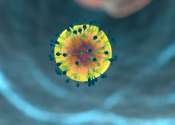Study pinpoints molecular targets of transplant rejection
Researchers from the University of Sydney and Monash University have made a significant discovery that uncovers what is happening at the molecular level when an organ transplant is recognized as foreign by the immune system.
Nov 8, 2021
0
61









